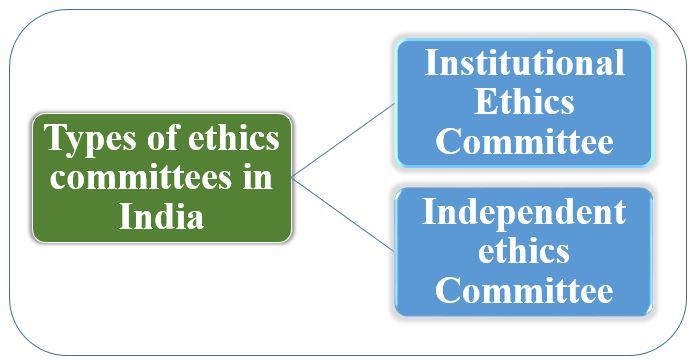Ethics committees-clinical research
In India, The concept of ethics committees were in 1980 by ICMR. Indian council of medical research (ICMR) provided the guidelines for the formation of Ethics committee. Ethics committee (EC) formed as a group of members including medical or scientific professionals along with non-medical or non-scientific professionals/persons. EC can also be called as Review Board (RB). Ethics committee (EC) is designated for the purpose of protecting the rights, safety and well-being of the subjects (humans) participating in the clinical research. This board is responsible for reviewing and approving the clinical research study protocols or its amendments in an unbiased manner. No study will be conducted in humans anywhere in India without having prior Ethics committee approval.
Related: List of clinical trial registries in the world
Types of Ethics committees-clinical research:
Two types of Ethics Committees available in India. One is Institutional Ethics Committee, another one is Independent Ethics Committee. Sometimes both ethics committees written as “ICE” in the short form in India. But both ethics committees are completely different. Institutional Ethics Committee works similar to Institutional Review Board (IRB)in other countries.

Institutional Ethics Committee:
It is formed by a hospital/Research centre. It reviews the documents/protocols submitted by that institution for conducting clinical trials (BA/BE studies or Clinical trials). It provides an unbiased opinion/approval about the proposed study from the research subjects point of view. It also performs ongoing review of the approved study at regular time intervals. Ethics committee consist of minimum of seven members and maximum of 15 members including chairman and member secretary. Ethics committee chairman should be from outside the institution.
Apart from the Ethics committee members, subject experts can also be invited for the EC meetings for their advice but they won’t voting rights for taking the decision about the proposed study protocol. It is mandatory to obtain EC approval letter before initiating the study.
Related: Job opportunities after M pharm pharmacology
Independent Ethics Committees (IEC):
It is not a part of any institution or hospital or research centre. It is an independent body without having any relationship with the institution. It reviews the submitted protocols from institutions and give the approvals to conducting the studies. Most important point is, at present IEC can only give approvals to the Bio availability/ Bio equivalence (BA/BE) studies of approved drugs. Except from these two things, ICE will act as same as Institutional Ethics Committee.
At present, nearly 660 Ethics committees registered with Central Drugs Standard Control Organisation (CDSCO) in India. From this, approximately 530 are Institutional Ethics Committees and remaining (130) are Independent Ethics Committees.
Related: Download free pharmacology books
If you like this article, please share to your friends and feel free to drop a comment below.